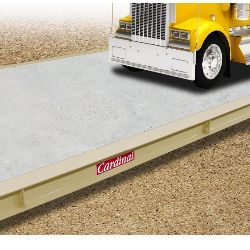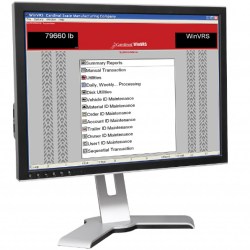In a world that is becoming increasingly conscious of its environmental footprint, the practice of recycling has emerged as a powerful solution to mitigate the impacts of excessive waste generation.
Among the various forms of recycling, metal recycling stands out as a vital contributor to sustainability efforts, reducing the demand for virgin materials, conserving energy, and minimizing greenhouse gas emissions.
At the heart of this process lies the critical need for accurate truck weighing as customers deliver their scrap metal, ensuring fair compensation and transparent transactions. This article delves into the significance of metal recycling and sheds light on the importance of precisely weighing trucks during the delivery of goods.

The Power of Metal Recycling
Metal recycling has evolved from a niche practice to a full-fledged industry with far-reaching environmental and economic implications. According to the Institute of Scrap Recycling Industries (ISRI), recycling metals offers a host of benefits, including the conservation of natural resources, reduction of energy consumption, and the lowering of greenhouse gas emissions. When compared to mining and refining new metal ores, recycling requires significantly less energy, thus reducing the carbon footprint associated with metal production.
Additionally, recycling metals like aluminum, copper, and steel also minimizes the need for landfill space, as scrap metal that would otherwise contribute to landfill waste is repurposed. By extending the lifespan of these materials, metal recycling contributes to a circular economy, where resources are continually reused, creating a more sustainable and efficient system.
The Role of Accurate Truck Weighing
One might wonder, “What does accurate truck weighing have to do with metal recycling?” The answer lies in the fundamental principle of fairness and transparency. When customers bring their scrap metal to the scale at the recycling facilities, they expect to be compensated fairly based on the weight and type of metal they are delivering.
This is where precise truck weighing plays a pivotal role. When a fully loaded truck drives across the 70 foot long truck scale and gets a weight, it is recorded. The truck is then unloaded. The truck then drives back across the scale and the gross, tare, and net weights are determined and printed.
Accurate truck weighing ensures that both the recycling facility and the supplier are on the same page regarding the quantity of metal being delivered. The weight of the metal directly influences the payment the customer will receive. Weight errors or estimating the weight could lead to either loss of revenue for the customer or unjust payment for the recycling facility, potentially causing mistrust and straining business relationships.
Transparency is another vital aspect. With proper legal for trade scales in place, both parties can trust that the transactions are conducted fairly and honestly. This transparency extends beyond immediate transactions, as customers are more likely to return to a recycling facility that has a reputation for accurate and honest practices.

Advanced Weighing Technology: Enhancing Precision and Efficiency
In the digital age, the recycling industry has not been left behind when it comes to technological advancements. State-of-the-art weighing systems have revolutionized the accuracy and efficiency of the truck weighing process. Modern weighbridges are equipped with cutting-edge digital load cell technology that can precisely measure the weight of the truck and even provide diagnostics for any scale errors.
Software solutions connected to these weighing systems can automate data collection and reporting, streamlining the entire process. This not only reduces the likelihood of human errors but also speeds up the weighing and transaction process, contributing to improved operational efficiency.
Building Trust and Sustainability
When customers know they will be compensated fairly, based on accurate weights, they are more likely to continue participating in the recycling process. This continuous flow of scrap metal into recycling facilities is essential for ensuring a stable supply of materials and promoting a circular economy.
Moreover, the environmental benefits of metal recycling are closely tied to accurate weighing. When recycling facilities receive the correct amount of materials, they can better plan their operations, optimize their processes, and reduce unnecessary energy consumption.
The practice of metal recycling is a great thing for our society. By reducing the demand for new raw materials, metal recycling plays a crucial role. At the heart of this process, the accurate weighing of trucks during the delivery of scrap metal materials emerges as a fundamental practice that ensures fairness, transparency, and trust within the industry.
As technology continues to evolve, weighing systems equipped with advanced load cell technology and automation software further enhance the accuracy and efficiency of the weighing process. These innovations not only reduce the likelihood of errors but also contribute to the streamlining of operations.
